You are here
New Releases
UNFPA Response to the Syrian Humanitarian Crisis in Lebanon
Before Syria descended into civil war, family planning services were free and used relatively widely by 58% of women in reproductive age. Yet the UNFPA-supported study carried out among Syrian refugee women in Lebanon in 2012 showed that only 37% of non-pregnant married women were using contraception. According to a global study by UNFPA, 250,000 women in Syria and refugee settings will become pregnant by the end of 2013.
UNFPA Response to the Syrian Humanitarian Crisis in Lebanon
There are no camps in Lebanon and most Syrian refugees have settled in the poorest parts of the country, in districts like Akkar in the North and Baalbek or Hermel in the Bekaa. The North Governorate is home to 40% of Lebanon’s poor, with more than half the people living under US$4 a day.
UNFPA Response to the Syrian Humanitarian Crisis in Lebanon
UNFPA needs assessment (July- August 2012) showed that while 37% of non-pregnant married women were using contraceptives, reasons for not using any was attributed to high cost, distance, quantity, and unavailability of preferred type of contraceptive.
UNFPA Response to the Syrian Humanitarian Crisis in Lebanon
UNFPA focuses on improving data availability and analysis around population dynamics, sexual and reproductive health (including family planning)

UNFPA Newsletter, Issue 4
The second half of 2011 was unlike any other. It hosted a major population milestone: the day of 7 Billion on October 31st. On that day, world population reached 7 billion. How we respond now will determine whether we have a healthy, sustainable and prosperous future or one that is marked by inequalities, environmental decline and economic setbacks.
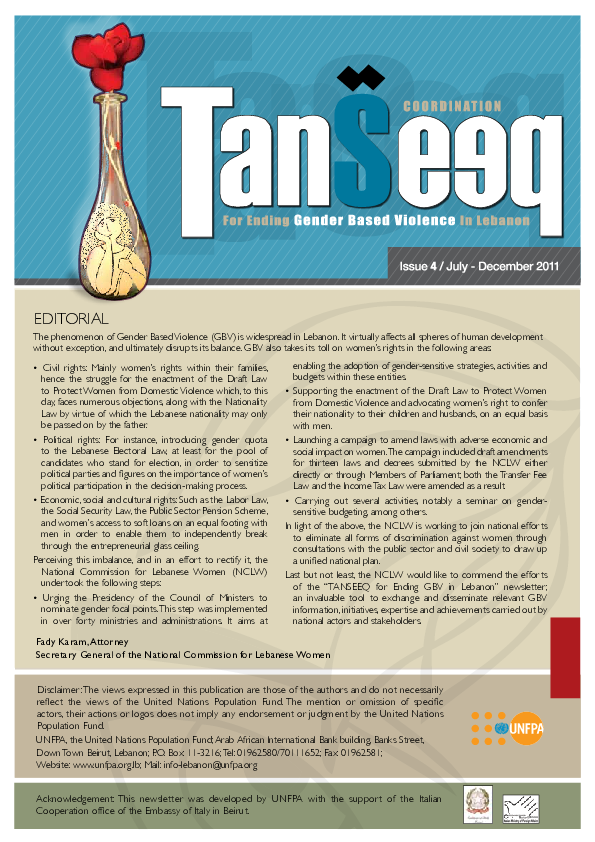
TANSEEQ for Ending GBV in Lebanon, Issue 4
UNFPA Lebanon has been collaborating with GBV actors in Lebanon, since 2008, to support national efforts for ensuring appropriate prevention of and response to GBV
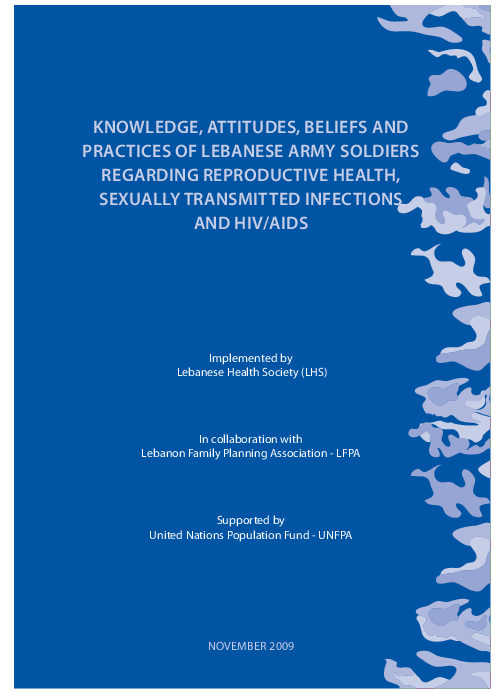
Knowledge, Attitudes, Beliefs And Practices Of Lebanese Army Soldiers
The armed forces around the world face a serious risk of HIV and other sexually transmitted infections (STIs). Reproductive health (RH) activities, including relevant awareness campaigns and services, have been implemented in various parts of the world based on assessment studies (1).
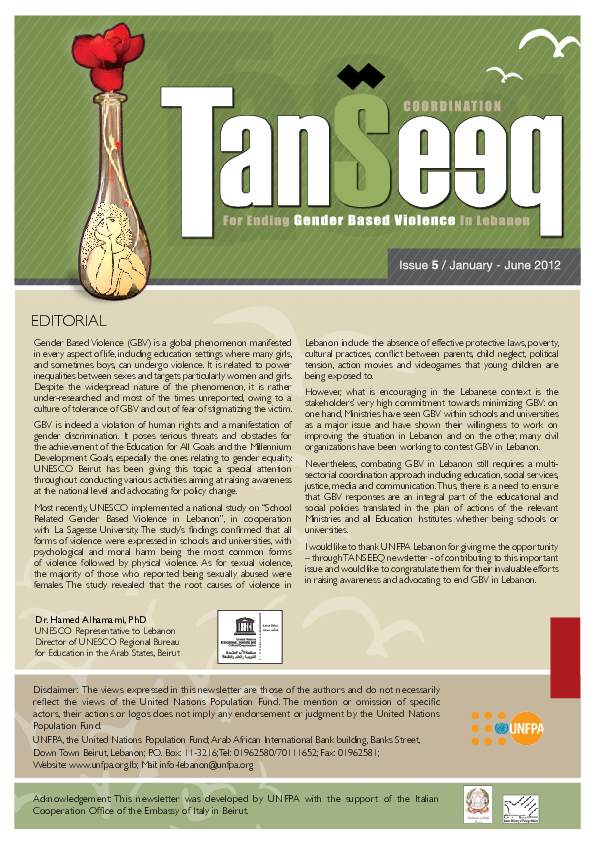
TANSEEQ for Ending GBV in Lebanon, Issue 5
Gender Based Violence (GBV) is a global phenomenon manifested in every aspect of life, including education settings where many girls, and sometimes boys, can undergo violence.
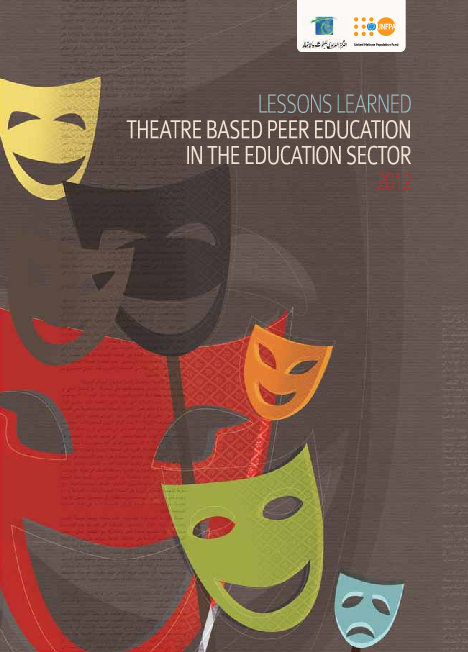
Lessons Learned Theatre Based Peer Education in the Education Sector
The term Theater Based Peer Education (TBPE) refers to the use of theatre performed by peers to other peers for educational purposes. It is a theatrical means to bridge between education and entertainment (edutainment).
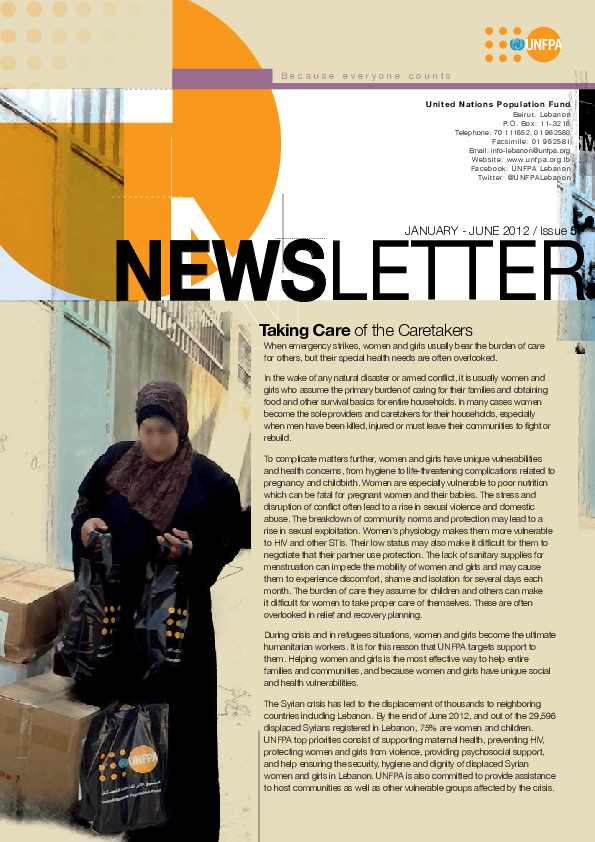
UNFPA Newsletter, Issue 5
In the wake of any natural disaster or armed conflict, it is usually women and girls who assume the primary burden of caring for their families and obtaining food and other survival basics for entire households.